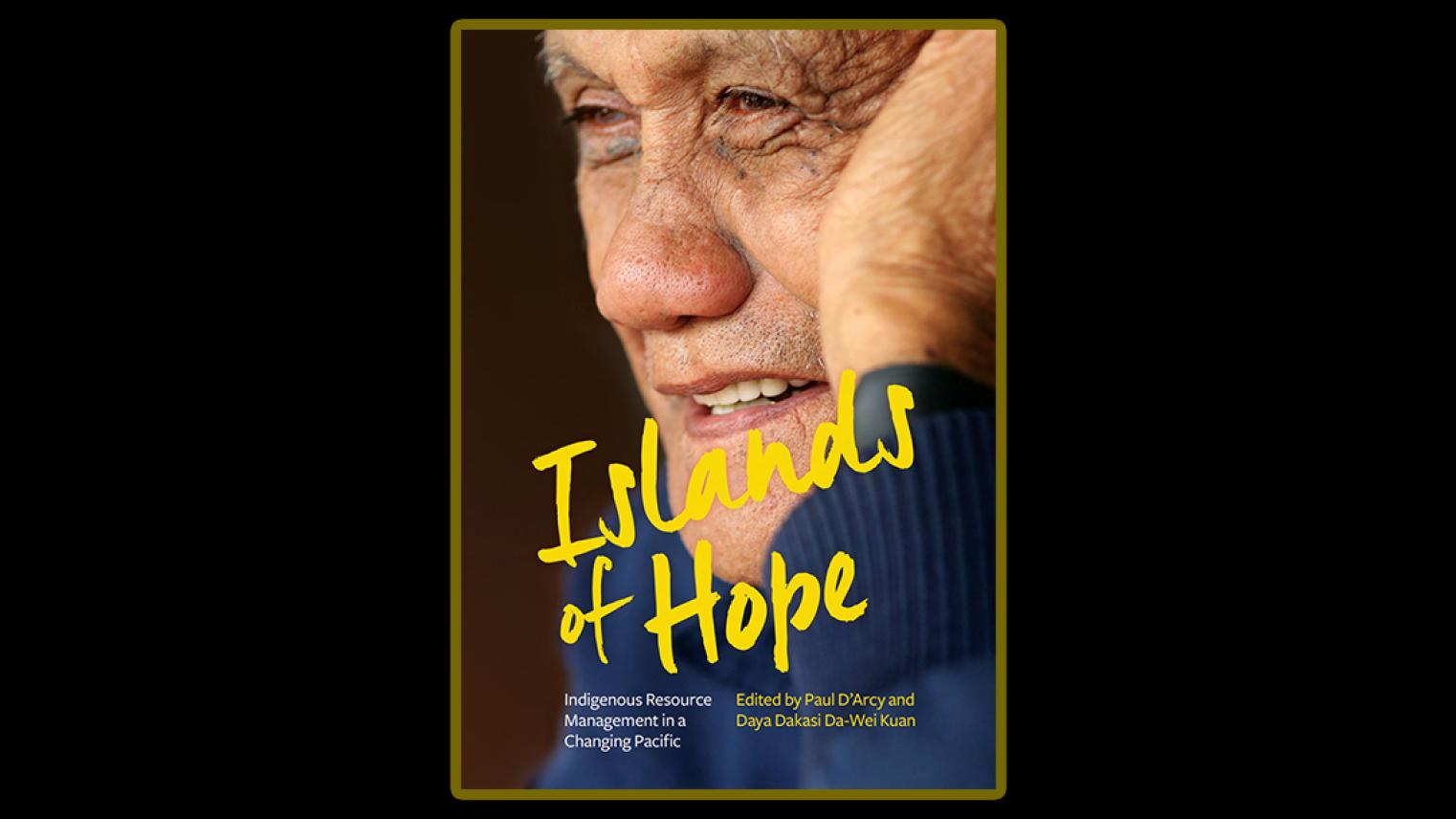Book Review and launch details — Islands of Hope: Pan-Pacific Indigenous Resource Management in a Changing Pacific

Review
This remarkably original collection co-edited by Paul D’Arcy and Daya Dakasi Da-Wei Kuan, has drawn together some of the most able scholars in the Pacific, many of them Pacific Islanders. Take Jonathan Kay Kamakawiwoꞌole Osorio, dean of Hawaiꞌinuiākea School of Hawaiian Knowledge at the University of Hawai'i at Manoa, who begins the book with Hawaiꞌian song and who wants us to know that ‘the Kānaka Maoli are still quite alive, we still draw our sustenance and personalities from the 'āina (land) and from our memories of kupuna (ancestors), and we have grown more conscious of our distinctiveness, learning from the moꞌolelo (stories) and mele (chants, songs, poems) we remember and the ones we continue to create’.
There are others: Tamatoa Bambridge from French Polynesia, Sāla George Carter, the Samoan academic who has revealed genuinely Oceanic climate diplomacy to us for the first time; Myjolynne (Mymy) Kim from Chuuk Atoll in the FSM; Daya Dakasi Da-Wei Kuan from the Tayal indigenous people of Taiwan; Regina Macalandag from the Philippines; Chels A. Marshall, an indigenous ecologist from Gumbaynggirr country in northern New South Wales; Roannie Ng Shiu, a Samoan who was for years in the Department of Pacific Affairs and is now in Auckland; Zag Puas from the FSM, the author of Federated States of Micronesia’s Engagement with the Outside World: Control, Self-preservation and Continuity (ANU Press, 2021); and Anita Togolo from PNG, who has a PhD from the ANU. Many other authors may be found in this volume, all steeped in the Pacific and the way Pacific Islanders see the world, especially the natural world.
The key theme is the empowerment of the indigenous people of the Pacific; enabling them– in the age of climate change, the Anthropocene, and (conceivably) the end of history – to do what they have always done, that is, to act as guardians and custodians of the land and the sea at a time of crisis, magnificently elucidated by Melody Kay in the last chapter.
Not many books, whether in Pacific Studies or not, are written for the Anthropocene era. This one is. None in Pacific Studies has ever extended the definition of the Pacific region to embrace Taiwan, Chile, the Philippines, northern Australia, Aotearoa, the Galápagos and Ecuador alongside more familiar sites in Vanuatu, Tahiti, Mo'orea, Federated States of Micronesia, and the Pacific Ocean itself. This one does. And somehow the editor and contributors avoid the despair that so often accompanies such reflections. As the title suggests, this is a book about hope, managing the Anthropocene by drawing on indigenous Pacific wisdom.
Book Launch
Islands of Hope: Indigenous Resource Management in a Changing Pacific will be launched officially on 25 July 2023 along with two other books - The Federated States of Micronesia’s Engagement with the Outside World by Gonzaga Puas and The Cambridge History of the Pacific Ocean Vol 1&2 (General Editor Paul D’Arcy).
Please click the link below to attend the book launch. Light refreshments will be provided.
